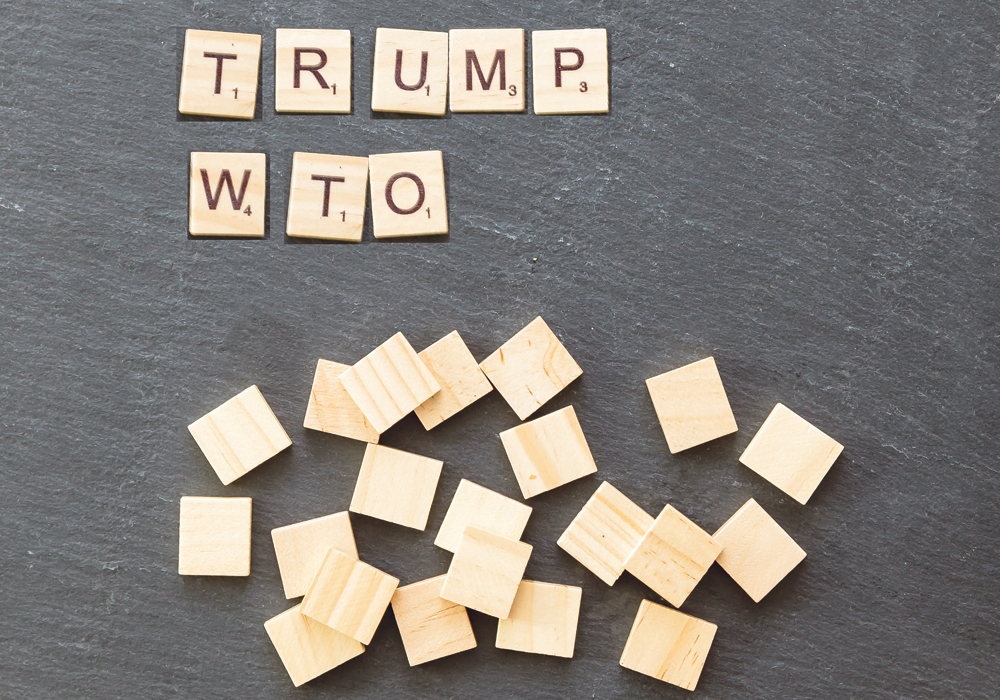Without rules-based trade, Canada faces a daunting task in dealing with major countries that play hardball
Canada faces a dire situation if the “rules-based international trading system” breaks down, says a new paper by a Canadian agricultural think tank.
If China and the United States end up crippling the World Trade Organization and other forms of trade referees, “middle countries” like Canada could find themselves playing by rules skewed against them.
“Canada, along with others, risks being collateral damage in this environment,” says The New Geo-Political Economy of Food, authored by Agri-Food Economic Systems of Guelph, Ont.
“The multilateral system governing world trade is being hit with a severe stress test just as it is undergoing what could prove to be an existential crisis.”
Read Also

Soybean market still figuring out implications of China-U.S. pact
Soybean futures had a muted reaction to the U.S. trade deal with China as the market tries to figure out the nuances of the deal.
The report urges Canada to develop stronger relationships with fellow middle countries, like the United Kingdom, Japan, South Korea and Mexico, which all have a vested interest in a rules-based trading system that protects all players.
It holds forth dim hope that the administration of U.S. President Donald Trump might be using its trade war with China as a way to force changes to China’s policies and its abuse of WTO provisions, as well as creating the basis for a WTO-plus system that revives the crucial institution.
However, it notes that this would be a “charitable interpretation” of U.S. actions, with an American move towards “America first” type bilateral deals.
“The rigid and continuing statements from the U.S. that it is only interested in bilateral trade arrangements, confirmed by its approaches to Japan, the EU and India in addition to China, could suggest that it is not in fact thinking of the multilateral system in pressing bilateral arrangements.”
If the U.S. is abandoning its commitments to a rules-based system in favour of “preferential trading arrangements based on relative power, this would indeed represent a dramatic reversal in how the U.S. sees its interest in foreign relations and trade.”
Equally dire is the approach of China, whose approach to trade not only conflicts with those countries like Canada that built their agricultural production systems upon an assumption of the rules-based system being ascendant, but cannot easily adjust to a non-rules-based dominant player.
“It does not anticipate the emergence of a dominant importing economy that is not market-based, nor the decline in the rules-based trading system in an environment of large, sudden and potentially sustained supply-demand gaps in products in which it is a global player.”
Canada’s current plight, with canola shipments effectively blocked and pork exports threatened, highlights the danger of a “dependence upon a single, large customer market (whose) sudden loss or reduction is devastating…. Alternative approaches may be entirely necessary in a future environment of ad hoc leverage in bilaterally negotiated agreements.”
The paper argues that if WTO-renewal efforts fail or stall, Canada might need to focus on bolstering existing trade pacts and making new ones with countries that can’t domineer the way the U.S. and China can.
Canada should also further develop value-added processing, since smaller markets will have differing demands for products components, like canola meal and canola oil, and adding value not only helps the domestic economy, but makes exporting easier since specific demands are being met.
The U.S. has harmed the WTO by blocking the appointment of new judges and by engaging in trade actions against a number of countries.
China, while generally abiding by WTO rulings, has been using WTO provisions that allow it, as a supposed developing nation, to avoid some of the restrictions that apply to developed nations.
That leaves a situation in which neither of the two have much of an incentive to revive the WTO quickly.
“It is increasingly clear that whether or not the U.S. reaches a trade deal with China, the possibility of a rapid return to the range of global marketing and value chains in food and agriculture built over the past two or three decades under rules-based trade is increasingly remote.”
The report concludes with a hopeful note, recalling a past world agricultural trade imbroglio that led to the current rules-based order.
“It took a crisis to reform the GATT into the WTO. The challenge facing all trading nations will be to use the current set of crises to precipitate the need for reform of the WTO into WTO-Plus.”
















